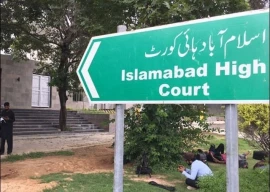
The federal and provincial governments of Punjab and Khyber-Pakhtunkhwa (K-P) have also decided, in principle, to reduce withholding tax rates, stamp duties and capital value tax on property transactions from the next fiscal year 2019-20. The tax and duty rates will be reduced to incentivise people to declare their properties at fair market values instead of lower rates.
These decisions were reached at a meeting held last week between the federal finance minister and provincial finance ministers of K-P and Punjab, said an official of the Federal Board of Revenue (FBR) on Monday. The move is aimed at curbing the use of black money for property transactions - an area that is also on the radar of the Financial Action Task Force (FATF).
In December 2016, the National Assembly had passed an open-ended tax amnesty scheme that allowed people to retain 97% of ill-gotten and tax-evaded money. It added Section 236-W to the Income Tax Ordinance that made the amnesty scheme permanent.
The Pakistan Muslim League-Nawaz (PML-N) government also added Section 111-(4) C to the Income Tax Amendment Ordinance 2001 to give effect to the open-ended scheme. It states that realty-sector investors can pay 3% tax on the difference between FBR-determined property valuation rates and deputy collector (DC) rates.
PTI govt announces tax package to boost revenue
At present, taxes on property transactions are determined through the property values set by the DCs at the provincial level while federal taxes are paid on the basis of FBR-notified property rates. Dealers are declaring two types of prices - one for provincial taxes and the other for federal taxes. Such a difference between the actual market rates and the DC rates has led to the parking of over Rs7 trillion in the real estate sector over the years.
Now, it has been decided, in principle, that from fiscal year 2019-20, Section 236-W will be deleted from the Income Tax Ordinance, which will end the open-ended tax amnesty scheme for the realty sector, said the FBR officials.
Similarly, the federal government will cut withholding tax rates on the sale of property to 1% from 2% and also to 1% on the purchase of property from 2% and 4%.
The provincial governments of K-P and Punjab will reduce stamp duties and capital value tax rates to 1% aimed at bringing uniformity in rates and reducing the cost for taxpayers.
In return, the taxpayers will be asked to declare their properties at fair market values as against the DC rates that are extremely low or the FBR’s rates that are hardly 50% of the fair market value.
The Pakistan Tehreek-e-Insaf (PTI) is in power in the centre, Punjab and K-P. The decision may also force the governments of Balochistan and Sindh to follow suit, which could help impose some checks on an unregulated sector.
During Pakistan’s mutual evaluation, the Asia-Pacific Group also expressed concern over the unchecked circulation of black money in the realty sector.
However, the capital gains tax rates may not be reduced in the next budget.
The PTI government is also working on its own tax amnesty scheme, which is more comprehensive in its scope than the last scheme of the PML-N government.
A commentary by Tola Associates shows that the 2018 tax amnesty scheme did not cover Benami assets, undeclared sales and production and undisclosed expenditures. But the proposed PTI scheme will cover these three areas.
Another distinction could be that in the PML-N’s scheme, tax return was not required to be revised and the effect of declaration was required to be incorporated in the next tax year, which may not be the case in the PTI’s scheme.
In the PML-N’s scheme, there were no restrictions on cash and gold declaration. But in the PTI’s scheme, the cash in bank accounts may have to be declared and there will be a limit on gold declaration of up to Rs5 million, according to Tola Associates.
Published in The Express Tribune, April 9th, 2019.
Like Business on Facebook, follow @TribuneBiz on Twitter to stay informed and join in the conversation.







1732776427-0/Express-Tribune-(1)1732776427-0-270x192.webp)

1732776989-0/Untitled-design-(71)1732776989-0-270x192.webp)
1732772730-0/BeFunk_§_]__-(63)1732772730-0.jpg)






COMMENTS
Comments are moderated and generally will be posted if they are on-topic and not abusive.
For more information, please see our Comments FAQ